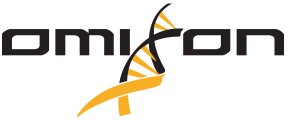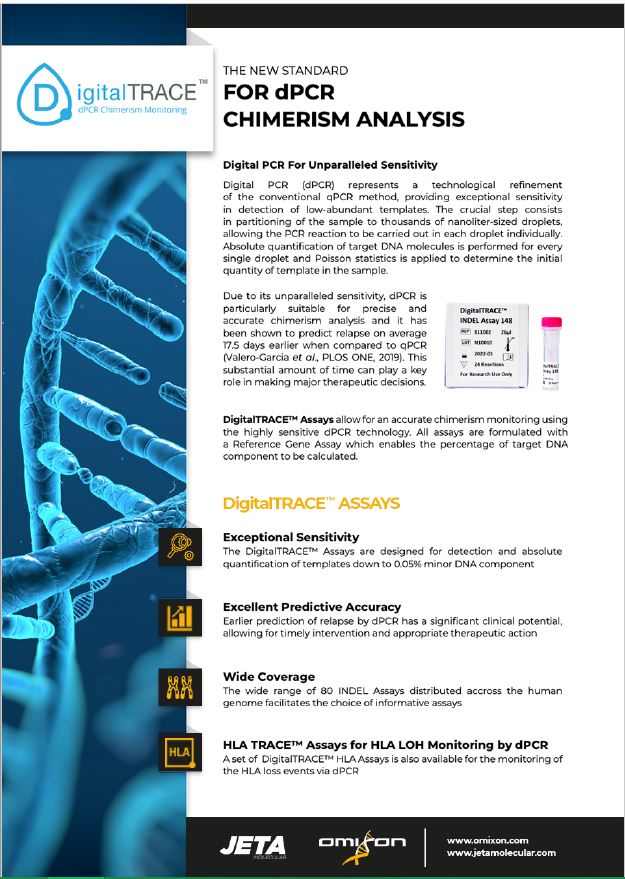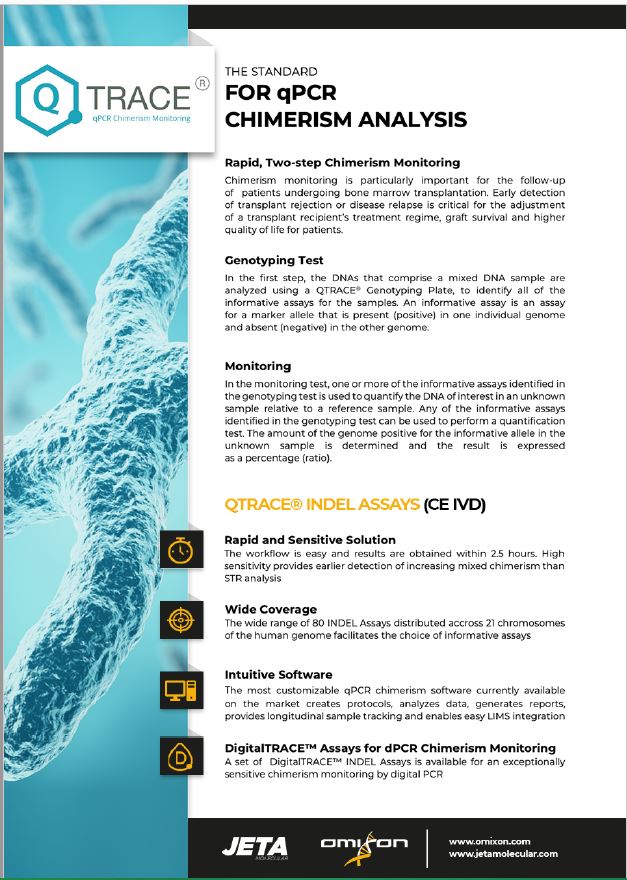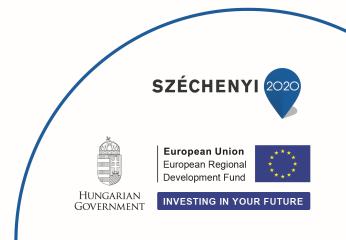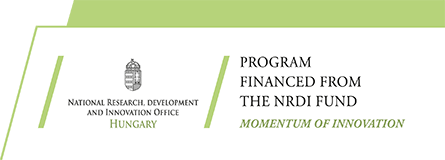Omixon is pleased to announce that we have been entered a new strategic partnership of JETA Molecular BV., based in Utrecht, The Netherlands, effective as of April 2022. This partnership will combine Omixon’s expertise as an international provider of disruptive transplant diagnostics solutions with JETA Molecular latest technological solutions aimed at accelerating the development of transplant diagnostics methods.
BACKGROUND
Hematopoietic stem cell transplantation (HSCT) is the ultimate curative treatment for a variation of malignant and non-malignant hematological dysfunctions.
Nevertheless, HSCT recipients are at risk of graft versus-host disease as well as failure of engraftment. Post-transplant monitoring by accurate quantitative methods of donor-recipient chimerism has become a critical tool for monitoring failure of engraftment or relapse.
Chimerism analysis measures the relative amount of living donor cells and residual recipient cells in the blood or the bone marrow of transplant recipients. The longitudinal monitoring of chimerism over time which can show variations in the percentages of donor and recipient cells between different time periods. Early detection of mixed chimerism can provide useful input for therapeutic decision regarding adjustment of immunosuppression, donor lymphocyte infusion or re-transplantation.
Digital PCR is a third generation PCR technology, where the samples are partitioned into nanolitre droplets so that each droplet becomes a separate sample with 0,1 or more copies of the target DNA molecule. Digital PCR is an absolute quantitation method offers the ultimate analytical performance with sensitivity similar to qPCR, but with greater accuracy, less variability, and without the need for calibration curves, efficiency controls and multiple replicates. The higher sensitivity, or lower limit of detection offered by dPCR can translate into earlier detection of mixed chimerism and more time for the adjustment of treatment.
DigitalTRACETM offers the best combination of high sensitivity, streamlined laboratory workflow and ultimate clinical diagnostic value.
SOLUTION
DigitalTRACETM by JETA Molecular is a combined software and reagent package for post-transplant monitoring of patients following HSCT. This includes a wide panel of bi-allelic INDEL (insertion/deletion) markers which ensure individuals can be uniquely identified; this enables the software to calculate the percentage of circulating patient/donor cells. The monitoring assay utilizes digital PCR (dPCR) technology to provide a highly sensitive, reproducible microchimerism technique that can detect disease relapse earlier than qPCR and STR methods. Another key point is that DigitalTRACETM has been validated to run on a variety of dPCR instruments, providing laboratories with greater flexibility when choosing to implement dPCR monitoring.
| STR | 5% | € | Currently used by most labs; instruments reaching the end of life Highly reproducible. Least sensitive. |
| qPCR | 0.01- 0.1% | €€ | Relative quantification, multiple wells for 1 sample, accuracy lower at higher concentrations. |
| NGS | 0.01% | €€€€€€ | Most sensitive, but time-consuming. Reduction in effectiveness for multiple donors. |
| DigitalTRACETM | 0.01-0.1% | €€€ | Absolute quantification, fewer wells per sample versus qPCR, accuracy independent of concentration. Highly reproducible. |
